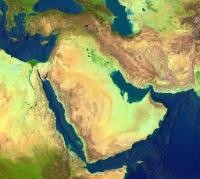A scan of the Near East's political horizon is enough to throw the most earnest of peacemakers into despair. A few days ago, al-Qaida's chief commentator on world affairs, Ayman al-Zawahri, blasted Hamas for agreeing to a power-sharing deal with Fatah in the Palestinian territories. Not to worry, Hamas promptly reassured Osama Bin Laden's right-hand man, Hamas remains thoroughly committed to destroying Israel. While the leading party on the Palestinian side reaffirms its unwillingness to accept a two-state solution, the diplomatic world is in a flurry of activity that seems to ignore that reality. Israel has been holding talks with Fatah's Mahmoud Abbas, and diplomats from the United States and Europe are busy figuring out how to push forward the peace process between Israel and the Palestinians. Given the current situation, is there any chance of progress in the Arab-Israeli conflict? Surprisingly, the answer is yes. The key is focusing on Arab-Israeli peace, rather than emphasizing a currently unreachable Israeli-Palestinian peace agreement. And that may just be about to happen. Later this month, the Arab League will meet in Riyadh, where the Saudi king will revive his 2002 Saudi Peace Initiative. The rough outline of this vague initiative is an offer by Arab countries to establish full relations with Israel in exchange for Israel's withdrawal from occupied territories.
Taking a Different Road Towards Middle East Peace

